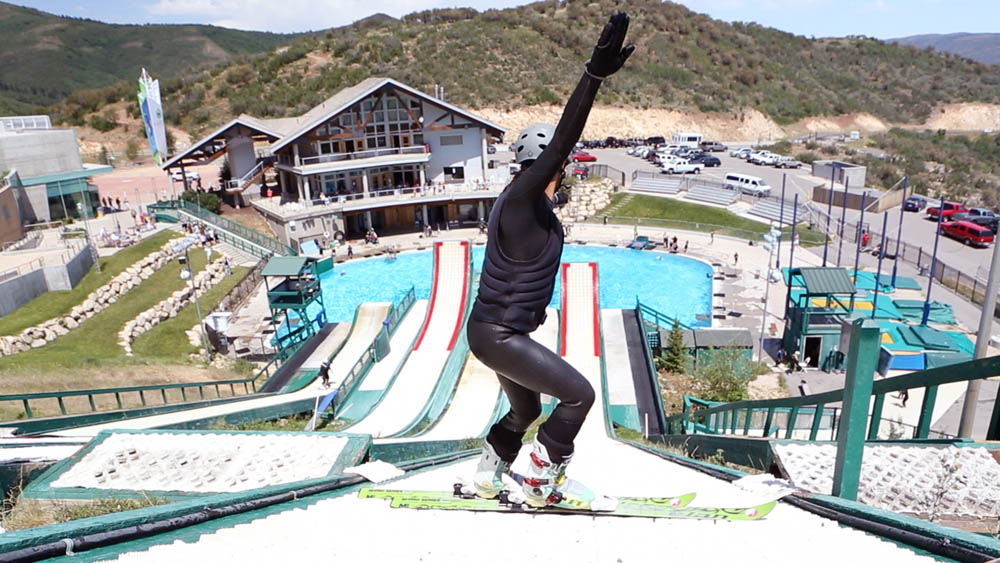With her history in women’s sport, aerial skier turned filmmaker Katie Bender became the perfect person to tell Lydia Lassila’s inspirational story. By Caris Bizzaca.
Lydia Lassila was flying high – in more than one sense. She had won Olympic gold for aerial skiing in 2010, given birth to her son, and was now soaring and spinning through the air as she made her return to training in the US.
As former aerial skier Katie Bender watched her friend throwing herself back into the adrenaline-pumping sport, and listened to her plans – to attempt one of the most difficult tricks in aerial skiing at the 2014 Sochi Winter Olympics – she knew she had to tell her story.
“Lydia was telling me how she wanted to do a quad-twisting triple somersault, which is a trick that only men have done for the past 20 years,” Bender says.
“Understanding the complexity of her backstory, I knew this would be such an amazing journey (to film) as a mum in a dangerous and unique sport. I thought ‘if don’t tell this story, no one will’.”
Bender asked for Lydia’s story rights and a couple of days later, she was back at the water jump (aerial skiers practice on water before snow), but this time with some friends to grab footage.
That footage became the opening sequence of The Will to Fly, a documentary that tracks the highs and lows of Lydia’s journey from aspiring gymnast, to ambitious risk-taking aerial skier, to Olympic gold medallist and beyond.
The ‘beyond’ part is what really struck Bender, who co-directed the film with her filmmaker partner Leo Baker (an animator and editor on the Oscar-winning short The Lost Thing).
Many expected Lydia to hang up the skis after she won gold and had a baby, but she returned, determined to conquer the quad-twisting triple somersault and be the first woman to ever do so. And on the world stage at the Olympics, no less.
“I do think in particular girls and women will feel empowered by this,” she says.
“It’s about her staying true to herself, and not having any regrets.”
She says it’s an important message for women, especially anyone wanting to return to work after having a baby.
But it’s even impacting into the opposite end of the spectrum.
A study guide for schools has been developed with Australian Teachers of Media (ATOM) and at one recent Sydney Q&A screening, a dozen young girls were in the audience, asking questions and waiting to meet Lydia.
“We actually had one of their mums write to us after that screening, whose daughter is training to be an elite swimmer was so inspired by it,” Bender says.
It taps into the other goal Bender has for the documentary – to better the situation for these young Olympic hopefuls and particularly women.
Bender was a rookie aerial skier during the days Lydia was in the Olympic team and remembers the struggle and how difficult it was to get sponsorship.
As such, she hopes The Will to Fly can also act as a jumping-off point for broader talks around the involvement and support of women in sport.
“(The Will to Fly) is the first sport film about female achievement in this type of medium, so I really do want it to be a vehicle to create discussions and solutions, whether it’s in the corporate landscape or the sports community,” she says.
“I’m really passionate about that given my history.”
The Will to Fly is screening in select theatres now.


